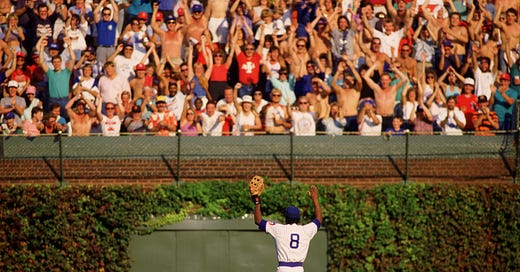So with all this boring and infuriating labor talk taking up the spaces that should be filled with baseball, I thought it might be fun to look back at a classic of the genre, one that will be familiar to all of you who have read the classic Lords of the Realm.
The January 8 Eight — always particularly special to me because January 8 is my birthday — wer…



